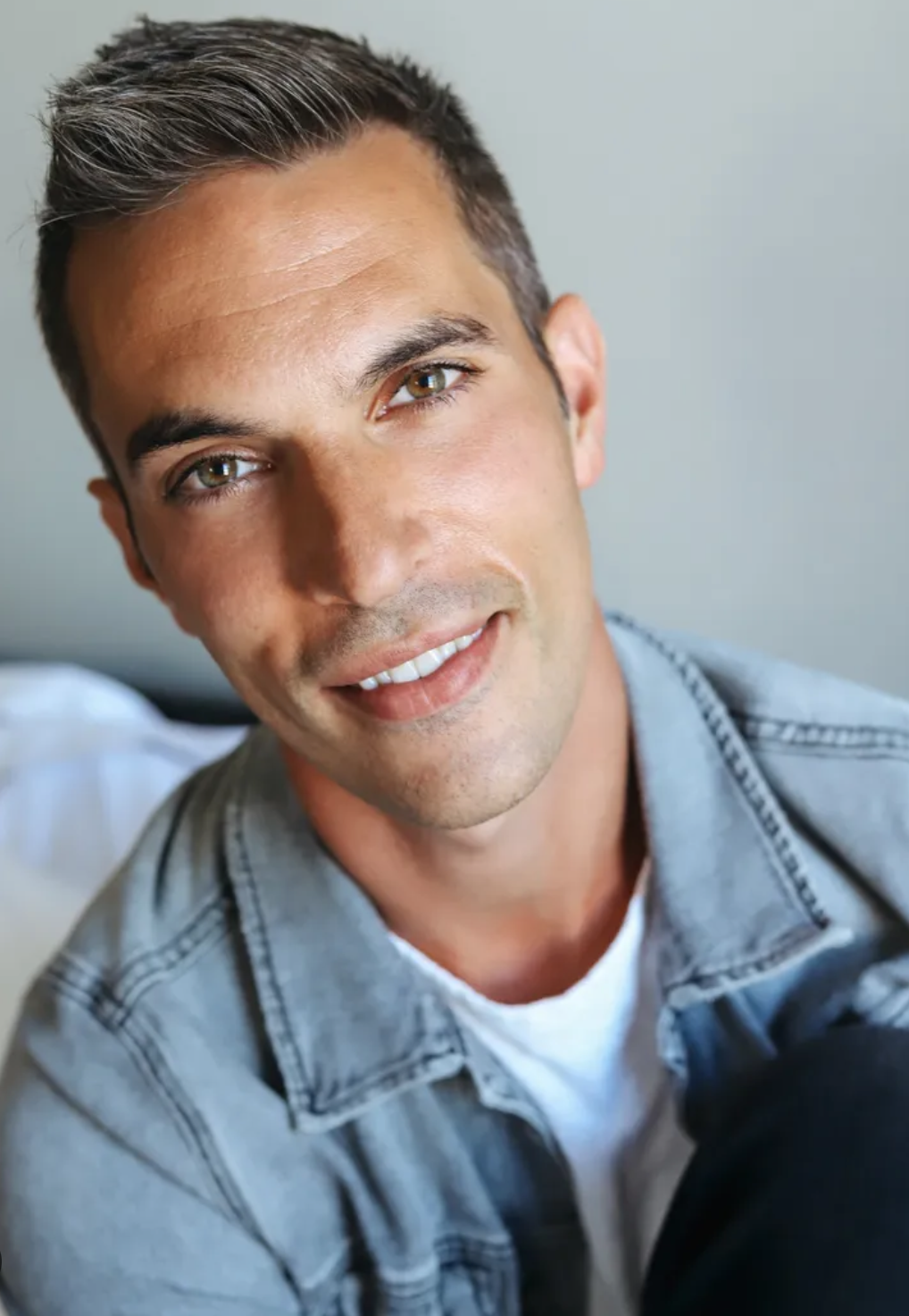 THE BEST STRANGERS IN THE WORLD
THE BEST STRANGERS IN THE WORLD
Stories from a Life Spent Listening
by Ari Shapiro
HarperOne. 244 pages, $28.99
I RECOMMEND reading the last chapter of The Best Strangers in the World first. In it, Ari Shapiro, a host on NPR’s All Things Considered since 2015, describes three of his favorite interviews, revealing what he tries to accomplish as a reporter, which is to tell stories of people who “move from trauma to transcendence.” Knowing that optimism in the face of obstacles is what motivates Shapiro explains the buoyant tone of this, his first book.
Shapiro has many reasons to be cheerful. He is tall and good-looking and has a devoted husband, a great job, famous friends, and a singing voice that landed him a job with the band Pink Martini. For those of us less blessed, all of this can be a bit overwhelming. What makes this book worth reading is the inside view it provides on reporting the news for NPR and on being a gay man in this world, one who came of age in the 1990s.
After guest hosting an NPR show for the first time, Shapiro received a listener letter asking him to “Please Butch up.” Shapiro acknowledges that he sounds a little gay on the air with what he calls a “slightly lilty, swishy NPR voice.” It doesn’t bother him. In Washington, a city with a homophobic past, he has covered the Justice Department and the Obama White House. He has reported from war zones in Europe and the Middle East. In none of these assignments has he been anything other than himself: a hard-working correspondent who happens to be gay and Jewish, just doing his job.
Shapiro is part of a well-adjusted queer generation that has no use for the closet, even for public figures. Growing up in Portland in the ’90s, he had supportive parents, came out in high school, and went to Yale, where he met his husband in a campus production of Little Shop of Horrors. When he started out at NPR, he found powerful mentors like Nina Totenberg, but no openly gay role models. Rosie O’Donnell and Anderson Cooper were still in the “glass closet”—officially straight, but who are we kidding? Shapiro sees himself as a role model for a new generation of gay journalists. His perspective on his career, his bravado, and his self-deprecating humor will be enlightening to older gay readers who knew a very different world when starting their careers.
 Shapiro provides an inside view of NPR and the Washington press corps. Reporters work with a producer, who does everything from critiquing their stories to keeping them from being kidnapped. The paper napkins on Air Force One read “Aboard the Presidential Aircraft,” with the presidential seal in blue ink. Arriving in Israel on assignment, Shapiro once used one of these napkins to prove to a skeptical border guard that he actually flew with the president. Shapiro addresses the relationship between journalists and the stories they cover, which often involve people in trouble, such as refugees in danger of losing their lives as they flee a war zone. Journalists cannot offer them assistance; they can only report on their stories. On the air, the result can seem cruel. Shapiro offers no easy answer for how a journalist reconciles his humanity with his professionalism.
Shapiro provides an inside view of NPR and the Washington press corps. Reporters work with a producer, who does everything from critiquing their stories to keeping them from being kidnapped. The paper napkins on Air Force One read “Aboard the Presidential Aircraft,” with the presidential seal in blue ink. Arriving in Israel on assignment, Shapiro once used one of these napkins to prove to a skeptical border guard that he actually flew with the president. Shapiro addresses the relationship between journalists and the stories they cover, which often involve people in trouble, such as refugees in danger of losing their lives as they flee a war zone. Journalists cannot offer them assistance; they can only report on their stories. On the air, the result can seem cruel. Shapiro offers no easy answer for how a journalist reconciles his humanity with his professionalism.
The gravity of the situations that Shapiro encounters, from Syrian war refugees to the massacre at the Pulse nightclub in Florida, is at odds with his inclination to end each vignette on an uplifting note. The signoff at the end of most radio segments leaves the listener with something positive. This device seeps into Shapiro’s style as a writer. His upbeat endings to each chapter may move some readers, but I found them too pat. Given the profound suffering many of the people chronicled in this book endure, it seems to me that indignation, a refusal to be consoled, is a more appropriate response to their plight and the state of the world.
Shapiro admits that a radio story is ephemeral, broadcast on the air and then gone. A book, on the other hand, is more enduring and requires probing reflection to have a lasting impact on readers. Whatever it may lack in reflection, this book will be read because of the inspiring story it tells about its articulate, accomplished, and, yes, enviable author.
Daniel Burr, who lives in Covington, Kentucky, is a frequent contributor to this magazine.






